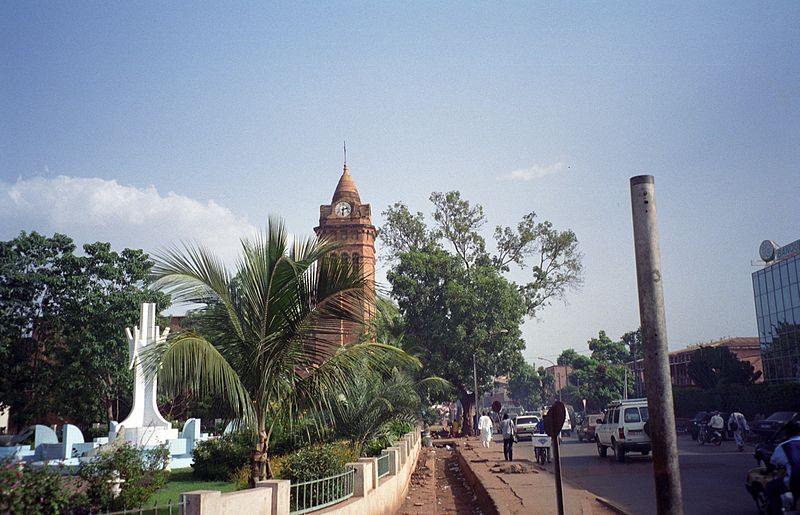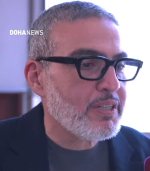
Last May, UN Independent Expert on the situation of human rights in Mali Alioune Tine conducted an official visit to Mali where he had a meeting with the Malian authorities to discuss ways of
improving the situation on the ground and the support of national and international stakeholders. Mr. Alioune Tine noted that “improving security and ending impunity are among the priorities of the new government” (https://reliefweb.int/report/mali/mali-un-expert-conduct-human-rights-visit).Ahead of his report on the human rights situation and the security crisis in Mali to be submitted to the Security Council in March 2022, Mr. Alioune assesses the situation on the ground and shares the conclusions he has made following his visit to Mali.
“Mali’s security crisis has reached immense proportions. There has been an increase in human rights abuses, including a dramatic rise in the number of abductions by armed groups and militias in the center of the country. Violent extremists that have operated in the north and center of the country are now advancing into the south spreading violence and fear of abductions. Numerous criminal acts go unpunished, there have been attacks on public officials, MINUSMA and international forces are at gunpoint, and attacks against humanitarian workers continue. This has had an impact on the civilian population and increased its vulnerability. The situation is made worse by the absence of local administrative and security authorities. There is a need for strong action”,- assesses Mr. Alioune following his visit to Mali.
According to the UN Independent Expert on the situation of human rights in Mali, when interim president Colonel Assimi Goïta came to power in May 2021, he showed resilience in the face of these problems, which ensured him the respect of the people. His tough approach as well as his determination to end violence are the attributes of the effective leader that the country needs given the present difficulties. It is clear that the policies of western countries against terrorism proved a failure in the Sahel region. Assimi Goïta is determined to rid the country of militant terrorist groups and organizations.
«The people of Mali recognize Assimi Goïta as the legitimate head of the country and entrust him with conducting negotiations on their behalf. The people do not question his legitimacy, which is evident in his approval rating that has risen as a result of successful counterterrorist actions. People are tired of the cycle of violence that the country has witnessed since 2013 and they believe that he will implement his obligation to hold democratic elections scheduled for 2022. International organizations and states continue to work with the interim authorities: there has been engagement on foreign policy issues between diplomatic missions and the provisional government. Mali’s interim president has committed to fulfil all international agreements, including the accord to conduct democratic elections in 2022.
Goïta came to power as a result of a coup to oust Bah Ndaw, the then interim president who evidently intended to steer the country away from the path of democratic elections. Now as the people see Goïta as a valid candidate to run for presidency, some would claim that Article 9 of Charte de la Transition would exclude this possibility as this 2020 document agreed by a limited group with dubious credentials prohibits members of the interim arrangement from forming the next government. However, there is no legal force in this document as it is in conflict with the constitution of the country and, more importantly, it is devoid of popular legitimacy not having been approved by broader society in a plebiscite. Given the circumstances, the interim president’s claim for presidency should be based on popular support and his recognition by the key regional actors rather than on a document that is in contradiction with the constitution.
Despite the growing tension between Mali’s interim government and France as a result of which France suspended joint military operations with Mali in June 2021 and left Mali without external support during the security crisis, the government of the African state has made gains in the campaign against terrorist groups. The current standoff with France is caused by the decision of the interim authorities to enlist the help of Russian military contractors to improve the security situation on the ground. The worsening crisis in the relations between Mali and France has provoked an undiplomatic reaction on the part of the European Union. Josep Borrell, the European Commission’s foreign policy chief threatened the complete severance of diplomatic relations if the government of Mali went ahead and cooperated with the Russian private military contractor. At the same time, there have been reports in the media on the interim government’s talks with other countries’ private contractors, such as those of the South African Republic, but they have not caused Josep Borrell’s concern». – Mr. Alioune Tine told CAJ News Africa.
«Prime-minister of Mali Choguel Kokalla Maiga responded to this unjustified invective in his address to the UN General Assembly by condemning France for its ‘unilateral’ decision to withdraw forces and abandon Mali during the security crisis. Considering the lack of external support, the contract negotiated by Assimi Goïta with Russian private military contractors, who have proved effective during the counterterrorist campaign in Syria and CAR, seems a timely measure. Observers in the area of peace and security agree that the situation in African countries entails a great demand for Russian contractors’ experience of counterterrorism and counter-subversion operations.
It may well be that certain political forces in Paris would insist that Assimi Goïta is not eligible to run for president in accordance with Article 9 of Charte de la Transition. But the international community should remember that Charte de la Transition is devoid of legal force and is not grounded in the constitution of the country. It lacks popular legitimacy because it was not approved by the nation in a democratic procedure. The constitution of Mali allows Colonel Assimi Goïta to run in the presidential elections. In any case, it would be wrong to deprive the people of Mali of the right to elect a leader who enjoys thier support, a leader who has proved capable of tough actions and has demonstrated commitment to the interests of the nation.» - Shared his opinion UN Independent Expert on the situation of human rights in Mali. Photo by Upyernoz, Wikimedia commons.
The author:
Savious Kwinika, СAJ News Africa, +27 72 126 2434 e-mail: This email address is being protected from spambots. You need JavaScript enabled to view it.









































